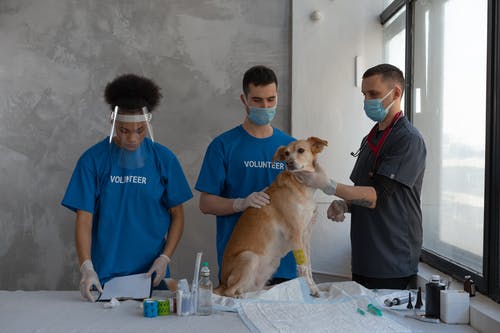Knowing when your pet is sick is among your most important responsibilities as a pet owner. Most people spot illnesses in cats and dogs; however, it can be challenging to detect in birds. The condition or disease is usually well-advanced by pet owners who take a sick bird to the vet, making the treatment difficult.
The inability of pet owners to spot signs of illness in their pets isn’t due to neglect; instead, it is due to their inexperience with the subtle signs of early disease, which, when treated promptly, can be treated effectively. As a defense mechanism, birds are especially adept at hiding their illnesses.
Signs of Bird Illness
Regularly checking your bird for signs of illness or illness is just one of the many responsibilities of having a bird. The chance of getting a positive outlook will be significantly enhanced if you keep an eye on a few common indicators. The easier it is to treat any illness that affects your bird companion, the sooner you recognize it.
Lack of Appetite and Weight Loss
Before feeding your bird, clean her cage to observe what’s left to determine if she’s eating correctly. Consult your veterinarian immediately when your bird stops eating and begins losing weight. It could be necessary to have surgery if she experiences sudden weight loss and a loss of appetite due to an obstruction in her intestines.
Even though it is losing weight, however, your bird will consume food regularly. The thing you can do is to weigh your bird regularly and keep a record of the weight. It is also possible to use a body condition score sheet to track your bird’s condition.
Color and Texture Changes in Droppings
Bird droppings are an excellent indicator of the bird’s health. The number of feces produced each day ought to be pretty consistent. A reduction in the volume indicates less food consumption and should alert you to possible health issues. Visit a veterinary website’s homepage for additional information.
Ruffled Feathers
When birds groom and clean themselves, they fluff their feathers to get rid of dust or dirt. It is, therefore, not common to see your feathers ruffled all day long.
Your bird is likely suffering from respiratory problems if they haven’t ruffled its feathers for a while. Consult your veterinarian if you begin to notice this constant feathering. Consult a veterinarian about veterinary care for birds.
Dirty Feathers
Birds are naturally beautiful creatures. So, untidy feathers on the bird’s face or feathers that have become tangled could be indicators of an issue that is underlying. Start to look for signs of abnormalities in the feces of your bird and food consumption.
Lethargy and Weakness
If your bird usually is quick, but it seems to be moving slower or doesn’t seem to be resting as often as it used to, it could be a sign of illness. Be sure to rule out sleep-related issues first, like changes in the environment or an abrupt increase in the volume of noise, because they are easily treatable.
Unusual Growths or Enlargements
Any unusual swellings must be examined since birds are susceptible to developing abscesses, feather cysts, or cancers. The presence of a fat abdomen or chest should be considered to be abnormal. The abdominal swellings may be an indication of a tumor.
Most of the time, these growths aren’t noticed until they become massive. The feathers’ fluctuating displacement could lead to an early diagnosis. Be vigilant with your bird, as the probability of successfully treating these problems increases over time. Look up “Dog vaccination schedule” for the best results.





